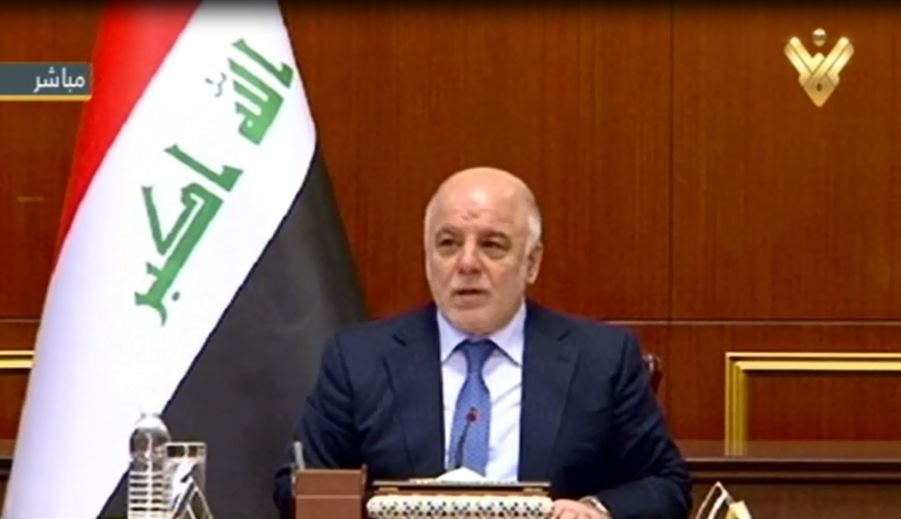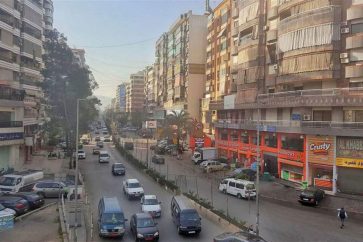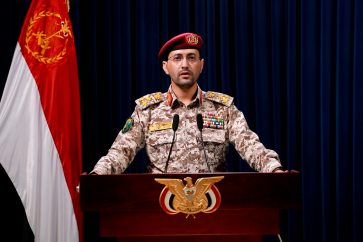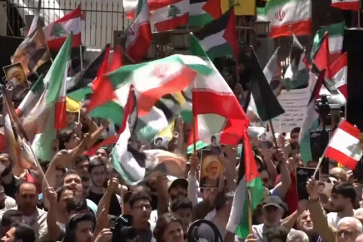Iraqi Prime Minister Haidar al-Abadi, whose country is engaged in war with ISIL, says the terrorist group is seeing its organization collapse around it.
Iraqi security forces have been fighting ISIL since 2014, when the terrorist group launched a large-scale offensive and overran chunks of territory in Iraq. Security operations by the Iraqi military and volunteer forces have since then led to the recapture of many of the areas that ISIL had seized, including rural areas as well as major towns and cities.
“We have seen the whole organization collapsing in terms of standing in the face of our own armed forces,” al-Abadi said in an interview with the Associated Press. “The success of liberating a huge area indicates that ISIL does not have the motivation to fight as they were doing before.”
The Iraqi forces are currently involved in a crucial operation to retake the only urban area under ISIL control, namely the city of Mosul, which the terrorist group has declared its so-called headquarters in Iraq.
In the interview, Abadi said Mosul is of utmost importance.
Referring to ISIL, he said, “This is like a snake, if you hit it in the middle or the tail, it’s no use. I have to hit it on the head. And the head of this terrorist organization is Mosul. If I remove Mosul from them, this is a huge blow… to its efforts to recruit young people from different countries of the world.”
The Iraqi prime minister said that the operation to retake Mosul is a “difficult” one even as he said it has been going on more quickly than expected.
“This is the first time where we are liberating a city or a place where civilians are staying at home,” he said. “It’s tough, it’s difficult because the security forces tell me they are being fired at from places where there are civilians and they cannot reply in kind. So, this is a very tough thing.”
Iraqi forces have besieged Mosul, which is located some 400 kilometers north of the capital, Baghdad, and are gradually advancing into it. They launched the operation on October 17.
The Iraqi prime minister said the decision to call on Mosul’s residents to stay in the city during the operation was meant to avoid a humanitarian disaster as an influx of displaced people could have arrived at camps outside of the city at freezing temperatures during the winter had they been urged to leave their homes.
Abadi had previously vowed that Mosul would be fully recaptured by year-end. In the interview, he stuck to that timeline.
The Trump threat
Elsewhere in his remarks, Abadi said he had been assured by US President-elect Donald Trump that his incoming administration would offer greater logistical support to Baghdad in the campaign against terror.
On the campaign trail, Trump had implied he would seek Iraqi oil in return for US support.
“In my telephone call with President-elect Trump,” Abadi said, “he assured me that the US support will not only continue, but it is going to be increased. So, I think I am going to be looking forward to more US support.”
Referring to the oil-for-military support threat, Abadi said, “The Iraqi people will not allow any country to take possession of their own resources.”
Commenting on the Popular Mobilization Units, forces that are assisting the Iraqi army and are commonly known by their Arabic name Hashd al-Shaabi, the Iraqi prime minister said that they “are mainly volunteers, Iraqi nationalists who rise up to defend their own country. They are prepared to sacrifice their own lives, their own families for the defense of Iraq.”
On Saturday, the Iraqi parliament approved a law to give full legal status to the fighters from the Popular Mobilization Units and recognize the group as part of the national armed forces.
ISIL killing uncooperative civilians: UN
Meanwhile, the United Nations (UN) has announced that the ISIL terrorists in Mosul have been killing those civilians who refuse to allow rockets and snipers to be positioned in their houses or whom they suspect of leaking information or trying to flee.
“On November 11, ISIL reportedly shot and killed 12 civilians in Bakir neighborhood of eastern Mosul for allegedly refusing to let it install rockets on the rooftops of their houses,” Ravina Shamdasani, a UN human rights spokeswoman, told a regular UN briefing on Tuesday.
Information received by the UN also showed that the terrorists publicly shot to death 27 civilians in the Muhandiseen Park in northern Mosul on November 25.
On November 22 an ISIL sniper killed a seven-year-old running toward the Iraqi Security Forces in the Adan neighborhood in eastern Mosul, according to UN data.
Battleground advances
Meanwhile, Iraqi government forces have established full control over a village to the south of Mosul.
A security source, speaking anonymously, told Arabic-language al-Forat news agency that Iraqi Special Operation Forces liberated the village of al-Lazakah south of Mosul following fierce clashes with ISIL extremists there.
He added that an unspecified number of the terrorists were killed during the fighting.
Iraqi Air Force fighter jets also struck ISIL positions inside Mosul, leaving a number of the militants dead and their military equipment destroyed.
Iraq’s Joint Operations Command (JOC) said at least 15 ISIL terrorists were killed as Iraqi military craft bombarded the village of Tal Abtah southwest of Mosul. Two vehicles rigged with explosives and belonging to the militants were destroyed as well.
Fighters from the pro-government Popular Mobilization Units also retook the villages of Southern Maflakah, Northern Turkmaniyah and Southern Turkmaniyah.
There are also reports that Federal Police forces are busy clearing buildings and roads in the southwestern quarter of Mosul of booby traps and hidden ordnance.
Source: Press TV




